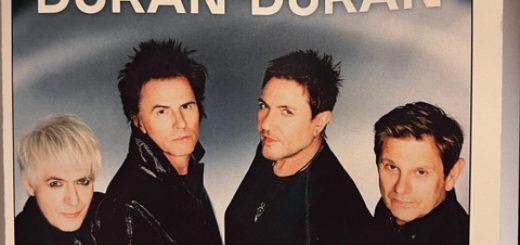Butterfly in the Sky
Jason T. Sparks/ Nashville Film Festival 2022
**ed note: Normally we wait until YOU have at least a tiny chance of watching the films we review before we review them. But in this case, that doesn’t seem possible…. Maybe the review below will motivate a streaming service to pick up this delightful documentary?
Bradford Thomasen and Brett Whitcomb are the directors of a documentary called Butterfly In The Sky. The subject of this doc is not crystal-clear from its title, unless you are a Millennial or very late Gen-Xer, in which case you recognize that cryptic phrase as the first line of a children’s TV show called Reading Rainbow, in which case you probably now have that very gentle earworm in your head.
This is a documentary, by two young guys, about a children’s show that encouraged reading. You may be forming a guess in your head as to what the general narrative push of such a doc would be: This show existed, here’s the story of its creation, and it was awesome and vital because reasons X, Y, and Z. Far be it from me to post spoilers, but you would be absolutely right.
Here’s the thing: I’m fifty years old as of this year, and Reading Rainbow premiered when I was eleven. It missed me, therefore; as a Gen-Xer squarely in the middle of that demographic, I was turned on to reading by Messrs. Bert and Ernie, and company. I was probably the only person in the audience for Butterfly who has never seen a single episode of the show in question—and as such, in a way, I may have been the perfect audience for the film, as the film itself stood as the only way to “sell me” on Reading Rainbow.
I’m pleased to report that the film did sell me. We start by meeting one Twila Ligget, a former teacher hired by WNED-TV, the PBS affiliate in Buffalo, NY, to create a TV show for kids that would encourage them not only to read, but to enjoy reading, as educational research was finding that a number of children had an outright dread of reading. Collaborating with Cecily and Larry Lancit, experienced producers of children’s television, they settle on a basic format—a host reading a story to the audience, then cutting to reviews of similar books. Those reviews would be literally out of the mouths of babes, as actual kids gave their actual opinions of the books.
The Lancits are then faced with a challenge—who should host? It’s decided that the host should be male, as the same studies which found kids dreading to read found that boys felt more dread than girls, who read faster across the developmental board. Their answer came in the form of a young actor who, five years earlier, had become a household name in the span of eight nights. His name, of course, was LeVar Burton, and the eight nights that made him were the eight nights that Roots aired, starring (among innumerable others) Burton as the young Kunta Kinte, the first of Alex Haley’s ancestors to be brought to America. The show’s impact on America was the kind of impact a network television show will likely never have again, and it made an impact on Burton; of it, he says in the doc, “I realized that…all television is educational. The question is—what does it teach you?”
In other words, Burton wants (understandably) to be very selective about what work he takes, and, when offered a show that promotes reading, he’s all in. Thus it is that, in 1983, Burton first appears on PBS, reading a book with the delightful title of Gila Monsters Meet You At The Airport, a book written from the perspective of a child moving from New York City to the Southwest, where he is concerned that Gila monsters will do just that. That’s the pilot episode, and we’re taken through a number of other episodes, in which Burton reads stories, other celebrity guests read stories (having told Lt Columbo’s backstory for this blog, I was over the moon to find out that a story called The Robbery at the Diamond Dog Diner was read by Peter Falk), and the kids recommend favorites of their own. That’s the formula. It works.
We get behind-the-scenes stories, of course, about making the formula, and adventures had therein; a lot of location shooting went into RR, and thus we are given a visceral story about the notorious Bat Cave in Texas (into which Burton would not go, for reasons made obvious within the story). We get a lot of the back-and-forth between Burton and the Lancits; the Lancits are alarmed more than once when Burton shows up for the first day of shooting a new season with a new appearance (a beard one season, an earring in another). Burton successfully advocates to keep the new looks because, after all, that’s the real him, and he want to be honest with his young charges. And, of course, there’s the perceived shot across the show’s bows in 1986, when Burton gets a new job, rocking a red jumpsuit and a banana clip on his face as Lt Geordi LaForge on Star Trek: The Next Generation. How will RR survive? Answer: he’ll do both, and invites RR’s crew to the deck of the Enterprise for what turns out to be one of that show’s most popular episodes.
Those details tell the story, but did they “sell me” on Reading Rainbow? No, but I can tell you what did: footage from the show itself. A few seasons into the show, a book about the death of a family member is discussed, and Burton introduces it by talking about his own family losses—and for this 50-yr-old Gen-Xer, it was as if he was across the table from me, talking to me. Ditto an episode from a few years later—2001, specifically—when Burton introduces us to “a very special neighborhood” in New York City. What makes the neighborhood special, he says, is that “a few months ago, something happened, right over there…”, and the camera pans to an open space that is clearly a view of downtown Manhattan. We know at once what happened. He addressed it, and talked to students at a local school who were finally able to come back to that school. I was at this point a lost cause. And I was sold on Reading Rainbow.
Which is not to say the show is maudlin; far from it. There’s also footage of Burton’s cameo on Community and Jimmy Fallon’s take on the theme song, a la the Lizard King. At the end of the doc, one is left with a positive afterglow, a confidence that this show was indeed a force for good. Have I given away a lot of what to expect in the film? Yes, I have. Should you still see it if it comes your way? Yes, especially if you’re of age to have grown up watching the show. In other words, to quote Mr. Burton himself from every episode, don’t take my word for it.






















